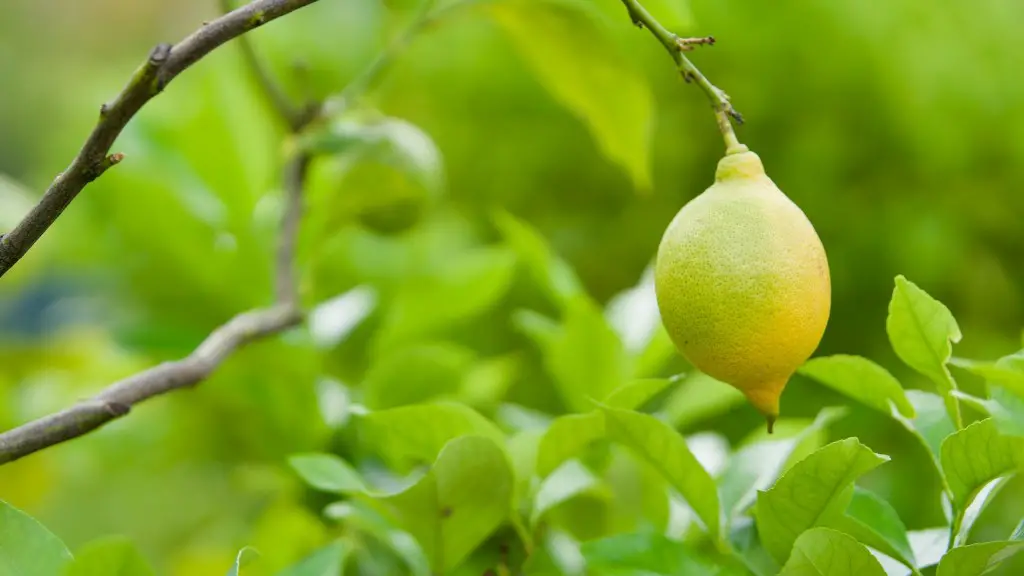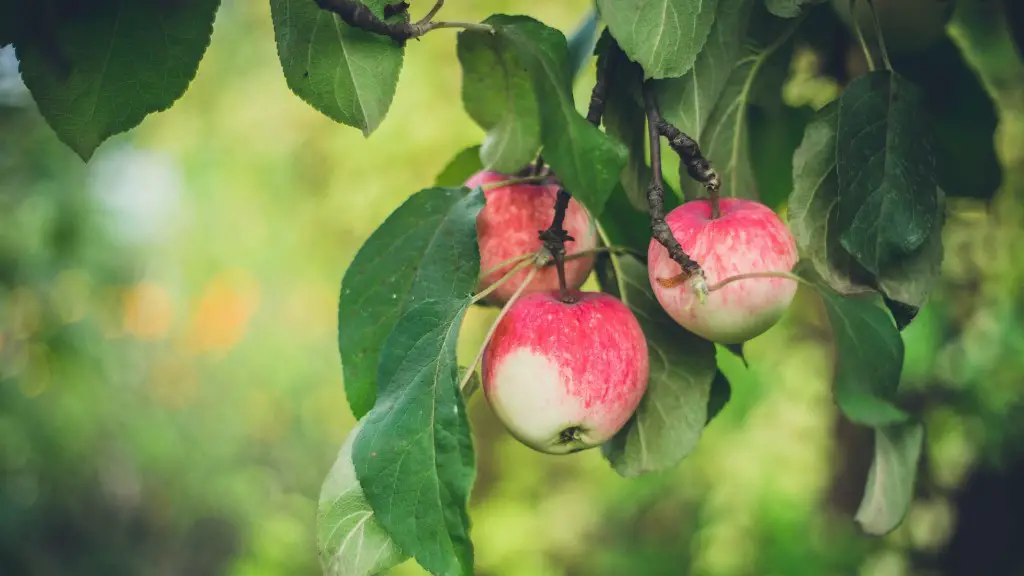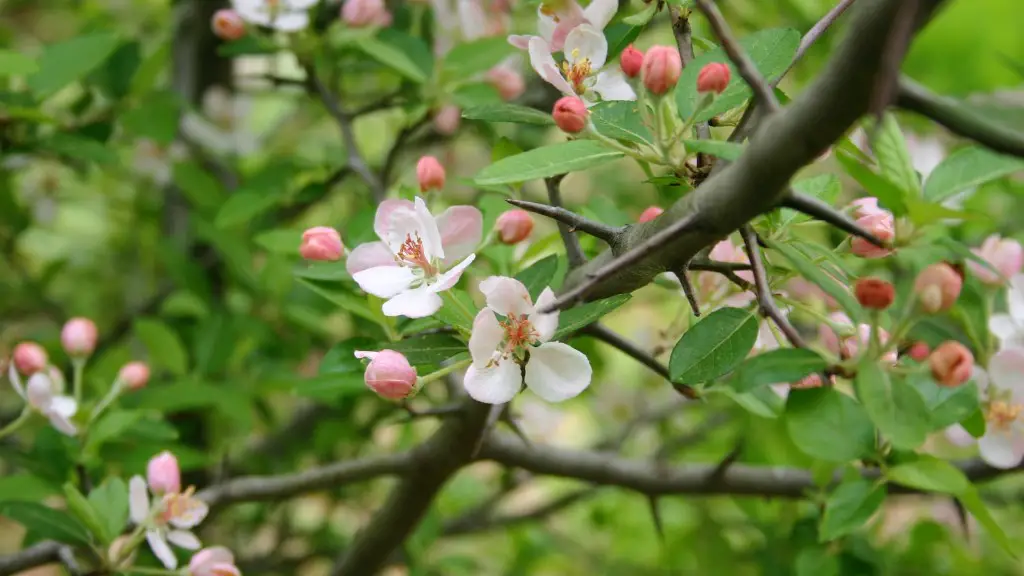It is essential to understand how often to water a lemon tree in order that the tree achieves optimal health and growth. To this end, an experienced gardener will provide you with the following guidance. Firstly, always water the lemon tree when the top 2-3 inches of the soil are dry to the touch. This usually requires watering every 5-7 days during the growing season and every 7-10 days when the tree is dormant. Secondly, the amount of water needed should match the amount of water that drains from the soil. Make sure to avoid soggy soil, which can lead to root rot and other fungal diseases. In hot climates, the tree may need more frequent watering. To determine if the tree needs watering, check the soil at least twice a week. Thirdly, during the growing season, apply 1 gallon of water per two square feet of soil around the base of the tree. Additionally, use a soil moisture meter to determine how much water is in the soil. Fourthly, when the tree is young, ensure you water the tree twice a week, testing the soil in between to ensure the soil has not dried. Fifthly, it is recommended to fertilize the lemon tree when it is actively growing. Additionally, reduce watering and fertilizing when the tree is dormant. Sixthly, increase the amount of water applied during periods of hot dry weather or during periods of drought. Lastly, when planting a new lemon tree, be sure to water the tree regularly the first season to help the roots become established.
Dealing with Overwatering
Although it is important to water your lemon tree regularly, it is equally important to not over-water it. An overly wet soil can lead to root rot, which can result in fewer fruit production. Furthermore, over-watering can also lead to other fungal and bacterial diseases, making it important to balance the water needs of your tree. If you are uncertain of how often to water, measuring the water in the soil using a soil moisture meter is the best way to gauge the soil’s moisture level.
Also, although not common, too much rain can also be a problem as a tree cannot absorb more water than it needs. Therefore, if it rains a lot in your area, opting for a container to grow the tree in might be the best approach as this will ensure that the excess water is diverted away from the soil.
Finally, although it might sound counterintuitive, too much water can also lead to a nutrient deficiency. If the soil is overly wet, it will push oxygen down the ground, preventing the roots from absorbing the necessary minerals for growth.
Choosing the Right Soil
In addition to understanding how often to water your lemon tree, it is also important to choose the right soil for it. Not all soils are equal, as some soils may contain more nutrients or better drainage than others. It is recommended to opt for a soil that is rich in organic matter and that drains readily. This will ensure that the tree is able to access the necessary vitamins, minerals, and oxygen it needs.
When shopping for soil, be sure to look for one specifically designed for citrus trees, as this will provide the right balance of nutrients and water retention. Additionally, you can also enhance the soil with organic matter such as compost or manure. This will improve the overall health and growth of the tree.
Note that the soil should also have a pH between 6 and 7 (neutral to slightly acidic). Too acidic or alkaline soil can lead to nutrient deficiency and poor tree health. If unsure, a pH soil test kit can easily be obtained at most gardening stores.
Water Stress
It is important to note that, although it is essential to water your lemon tree, it is equally important to not over do it. Too much or too little water can lead to water stress, which can impair fruit production. Water stress occurs when the tree is not able to take in enough water due to environmental conditions like drought or especially heavy rains.
To prevent water stress, pay attention to the environmental conditions in your area. If it is excessively hot or dry, be sure to increase the amount of water applied to the tree. Additionally, if there is excessive rain in the forecast, it is important to take that into consideration when watering the tree.
Furthermore, if you have an established lemon tree, pay close attention to the condition of the leaves, as this can provide a good indication of whether the tree is receiving enough, or too much, water. If the leaves appear dry and discolored, this could be a sign it is not getting enough water. On the other hand, if the leaves are wilting, this could indicate there is too much water present.
Benefits of Mulching
Finally, mulching is an excellent way to help conserve water around a lemon tree. By adding an organic layer of mulch to the soil near the tree, you can help retain moisture, reduce competition from weeds, and improve soil fertility. It is recommended to use a mulch that is made up of organic material such as wood chips, bark, straw, or pine needles.
It is important to note that mulching can help conserve water but is not a substitute for regular watering. Mulching should only be used in addition to regularly making sure the tree is receiving the water it needs. Additionally, keep in mind that too much mulch can increase soil temperature, so it is best to avoid piling it too high.
Fertilizing a Lemon Tree
Fertilizing is an important part of caring for a lemon tree, as it will help promote healthy growth and maximize yield. Be sure to only fertilize when the tree is actively growing. Most soils are alreadyll rich in phosphorus, so a balanced nitrogen-rich fertilizer that is high in potassium will be the best option.
Furthermore, it is recommended to use organic fertilizers as they are better for plant health as well as the environment. Additionally, organic fertilizers also help to improve the soil’s texture and structure as they break down over time.
Finally, always be sure to read and follow the instructions on the fertilizer package. Too much fertilizer can cause fertilizer burn and irreversible damage to the tree.
Gauging Watering Frequency
When caring for a lemon tree, knowing how often to water it is essential for optimal health and growth. The best way to gauge your tree’s water needs is to use a soil moisture meter. This will give you an accurate reading of the amount of water in the soil. When the soil is dry, add water and when moist, leave the tree dry for a few days. Be sure to avoid soggy soil, as this can lead to root rot and other fungal diseases.
Additionally, it is important to note that watering frequency will depend on the environment, season, and soil. In hot climates, it may be necessary to water more frequently, whereas in cooler climates, less water may be needed. Also, during the growing season, apply 1 gallon of water per two square feet of soil around the base of the tree.
Finally, when planting a new lemon tree, be sure to water it regularly the first season. This will help the roots become established and help promote healthy growth.



